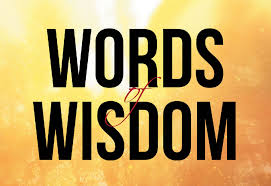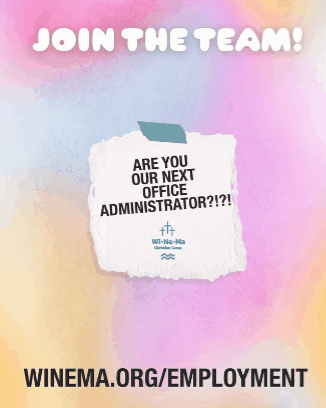
by Neal Lemery
“Whenever we come together to share strengths it breeds competition; whenever we come together sharing our weaknesses, it breeds community.” — Anonymous
We live in divisive times. If one spends much time “catching up” on news or social media, or talking about politics and social trends with one’s friends, the common theme seems to focus on our divisions, our differences, and winning some argument or political event. We like to boast about our strengths and hide our weaknesses.
But life isn’t about winning or losing, or “us vs them”. Our sporting events, which we support because we want something fun and wholesome for ourselves and our kids, often is analyzed in terms of win/lose. We like to measure strength and power. We keep score, and often that seems to be the primary reason for the activity and our attention we pay to it. Even the supposedly non-partisan, individually focused “pure sport” Olympic Games are reported complete with scorecards of national medal awards.
Discussions and viewpoints on political and social issues are often laced with mean comments and foul language, often thinly disguised with code words. We are encouraged to laugh with comedians who can make the most acidic standup routines, which we still refer to as comedy.
Informed and well-reasoned political conversation and a willingness to look at another point of view often is not on most of our social agendas for the day. Some politicians seem to want to advance their careers by acting with meanness and spite. They act as destroyers, not leaders of social advancement.
If everyone is now keeping score and arguing only for the sake of arguing, rather that persuading or informing, what is the grand prize? What are we attempting to gain? Is there a national championship for the loudest, most shrill argument? Are there extra points to be gained for sheer meanness? Does the winner get invited to the White House and be able to scream their point of view to a national audience? Or have I missed the news of a parade down Broadway, with a tickertape parade of nasty, vitriolic social media posts?
Such tactics don’t change anyone’s opinion, and, I suggest, not much learning occurs, nor do we advance the common welfare.
The gentle, collaborative model of social life is more fruitful. I do see a new feeling of cooperation, of coming together to advance both individual and social goodness. I see volunteers everywhere, building up people, providing educational opportunities. There are small flickers of great and unselfish actions.
My neighborhood now has several “educational pods” where parents and friends are providing private schooling for kids of all ages. There is laughter and enthusiasm, and the occasional gaggle of kids out for a jog between classes, satisfying their P.E. requirements for the day. Families are deeply involved in their kids’ education, with small classes and individual attention, coupled with virtual learning, allowing kids to benefit from a variety of learning styles and curriculum.
Small businesses are experimenting with a wide range of business models, and many workers are working from home, either part or full time, allowing them to be productive and have quality time with family, without the expense and exhaustion of a long commute to work. There is serious discussion about the role of our traditional routines of work and career models.
Virtual learning isn’t for all situations, but it has found a place in my life, allowing me to participate in and dabble in a variety of activities and experiences. I’ve been able to benefit from a rich selection of broadcasted art performances and educational presentations. We still need the in person connections and the “juice” of one on one conversations and socializing, but there are some welcome advantages to this post-pandemic world.
The world now has amazing tools for communication and improving our lives. Miraculous innovations and discoveries are commonplace. We can accomplish so many tasks. Yet, humanity’s hunger for power, wealth, and status slows our efforts to improve the lives of all. Why we allow that to occur is an urgent question for all of us.
I suggest this paradox between what we can accomplish and what is done is essentially an ethical and spiritual challenge. What is humankind’s purpose? What are we alive to do?
In that quest, that work to answer these deep questions challenges our approaches to achieving a meaningful future. Coming together to take on our weaknesses builds our community.


